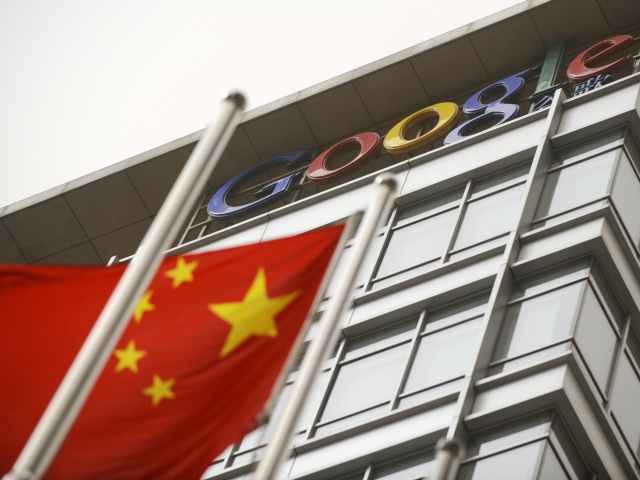Google requested a meeting with the U.S.’s top general, Chairman of the Joint Chiefs of Staff Marine Gen. Joseph Dunford, after he called the tech company out for conducting work that directly benefitted China’s military, while refusing to work with the U.S. military.
“The general is tentatively scheduled to meet with a senior Google official in Washington DC at Google’s request,” said Dunford’s spokesman, Air Force Col. Pat Ryder in an email on Thursday.
Dunford first revealed the meeting during a discussion on Thursday at the Atlantic Council, where he was speaking about great power competition with China and Russia.
He also revealed that a Google representative was attending his talk and planned to meet with him at a luncheon hosted by the Atlantic Council.
“I think I have a meeting next week. And I think I might have one at lunch here today. I think somebody’s here from Google. And I’m happy to have that debate,” he said.
Google’s offensive comes after Dunford criticized the company during a high-profile hearing with the Senate Armed Services Committee earlier this month, in response to a question from Sen. Josh Hawley (R-MO).
“The work that Google is doing in China is … indirectly benefitting the Chinese military,” Dunford said. “We watch with great concern when industry partners work in China knowing that there is that indirect benefit. And frankly, ‘indirect’ may be not a full characterization of the way it really is, it’s more of a direct benefit to the Chinese military.”
Last June, Google canceled a project working with the Pentagon to help develop artificial intelligence capabilities due to concerns from employees that their work could go towards warfighting in the future. However, earlier that year in January, Google opened an artificial intelligence research center in Beijing.
Google has also faced criticism after secret plans for creating a censored search engine for China were leaked to The Intercept. Google has reportedly shelved those plans.
Dunford remained unflinching in his criticism at the Atlantic Council, though he broadened that criticism to U.S. technology companies that conduct work benefitting China and did not specifically target Google.
He said historically, U.S. industry has helped give the U.S. military a competitive advantage, by allowing it to tap into intellectual capital of the American people, innovation, and production.
He said Chinese President Xi Jinping is trying to do the same thing and break down barriers between the military and industry in China. Thus, he said, high-tech U.S. firms doing business in China are ultimately handing over intellectual property not only to the company, but to the Chinese military.
“Typically, if a company does business in China, they’re automatically going to be required to have a cell of the Communist party in that company. And that is going to lead to that intellectual property from that company finding its way to the Chinese military. It’s a distinction without a difference between the Chinese Communist Party, the government and the Chinese military,” he said.
He said the problem with helping China develop its artificial intelligence in China is that it would help its authoritarian government assert control over its own population and enable the Chinese military to take advantage of the technology that is developed in the U.S.
He said he highlighted Google at the hearing due to its artificial intelligence venture in China.
“I think it’s a reasonable assertion even an open venue like this, to assert that the benefit of that venture for artificial intelligence in China, it’s one of many ventures of our companies that are there, indirectly benefits the Chinese military and creates a challenge for us in maintaining a competitive advantage,” he said.
“This is not about me and Google. This is about us looking at the second and third order effects of our business ventures in China, Chinese former government, and the impact it’s going to have on the United States’s ability to maintain a competitive military advantage and all that goes with that,” he added.
Dunford also later expressed concerns about allies who are signing contracts with Chinese companies like Huawei to develop their 5G networks — which U.S. national security officials and experts fear could later be compromised by China.
“Inside the Pentagon, we certainly look at that as a critical national security issue,” he said. “I’ve talked recently about to my counterparts is that you know, our relationships rely on trust.”
“And so whether it’s 5G or not, today or in the future, our ability, our willingness to exchange information, intelligence with a partner, is going to be based on their ability to protect that information and it’s going to be based on the information assurance of the systems that we’re using,” he said.
“This is why I think American industry needs to step out and dominate 5G because it’ll be in our national interest to do so.”

COMMENTS
Please let us know if you're having issues with commenting.